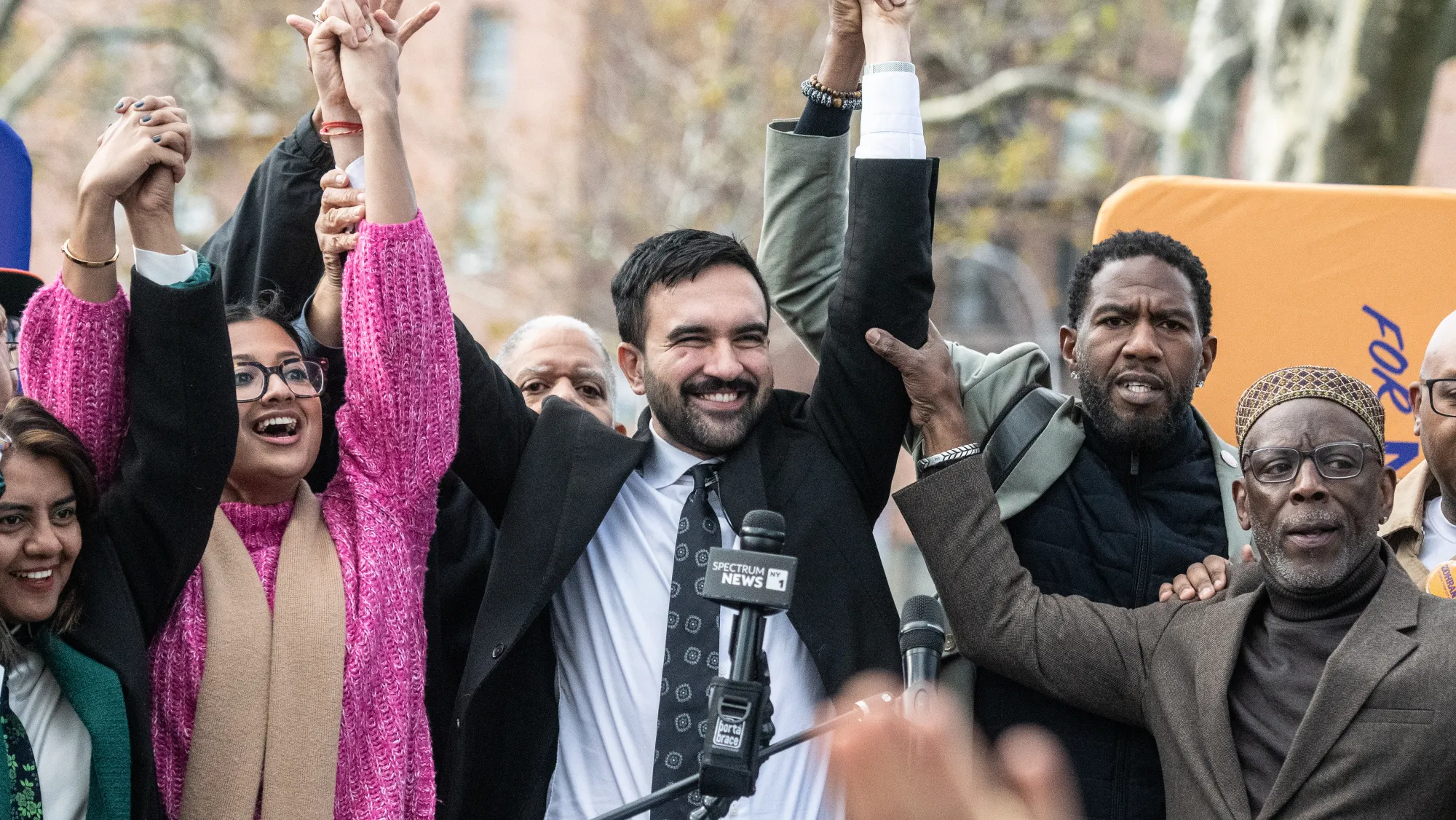New York chooses Zohran Mamdani after hard-fought campaign
PEACE Magazine gathered that for many Muslim Americans, Mamdani’s win is deeply personal. When he takes office on Jan. 1, he will become New York’s first Muslim mayor and one of the most visible Muslim elected officials in U.S. history.
The 34-year-old Queens representative rise marks a turning point in American urban politics, a triumph of grassroots organizing over establishment power.
By Abdullahi Yusuf
In one of the most closely watched political movements in recent memory, Zohran Mamdani’s growing influence in New York City has upended expectations and shaken the city’s political establishment.
According to The New York Times’ Dana Rubinstein, New York’s business elite poured more than $20 million into efforts to defeat Mamdani in both the primary and general election.
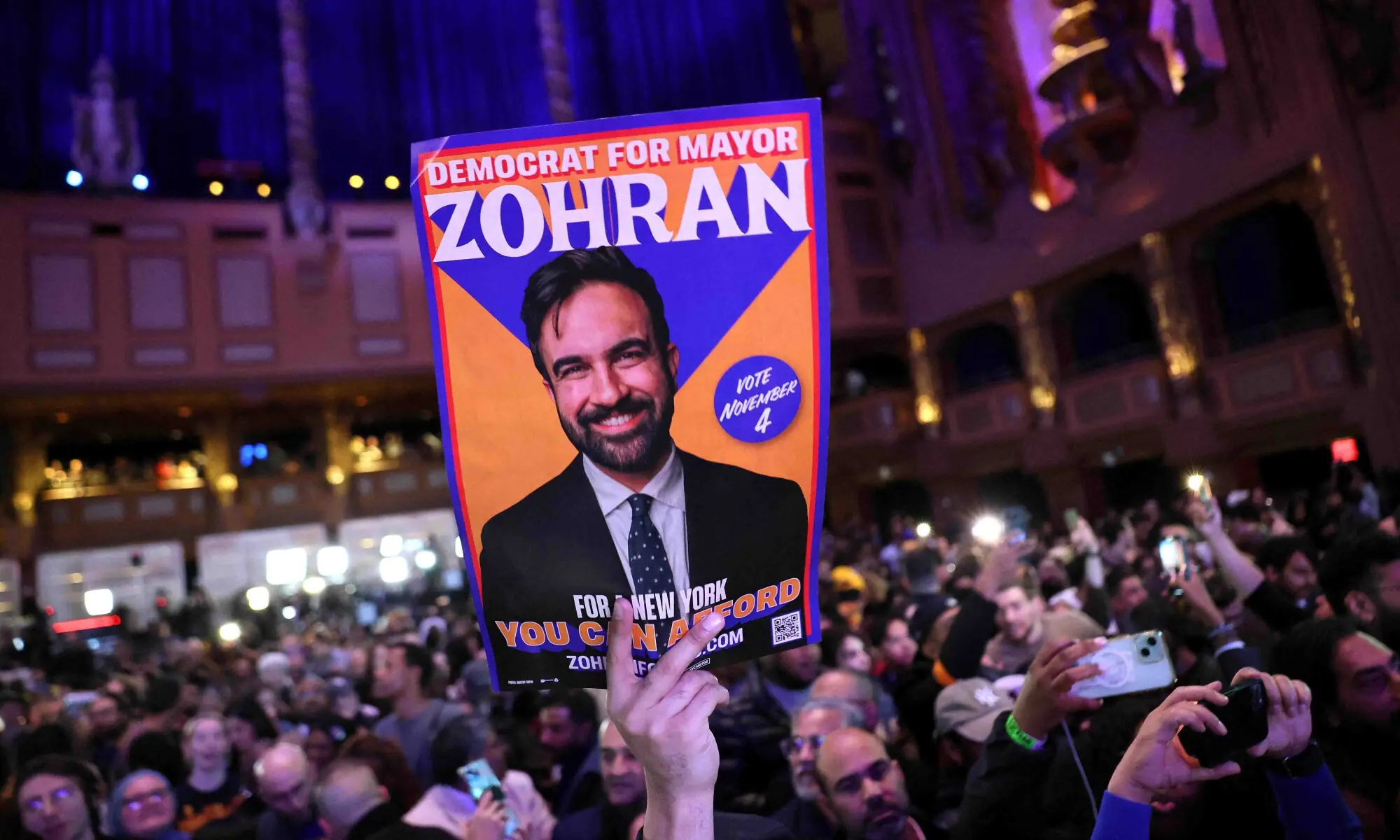
Despite the unprecedented spending, the 34-year-old state lawmaker’s campaign, powered by small donations and volunteer networks, proved unstoppable. “Money can influence elections, but it is not always determinative,” Rubinstein noted a conclusion reinforced by the results.
Mamdani’s campaign relied on a massive grassroots operation that registered thousands of first-time voters, many of them young people, immigrants, and working-class residents disillusioned with the old guard.
Early results showed Mamdani leading Andrew Cuomo by more than 100,000 votes out of 800,000 early ballots. As the remaining votes came in, that margin widened, making Cuomo’s comeback mathematically impossible.
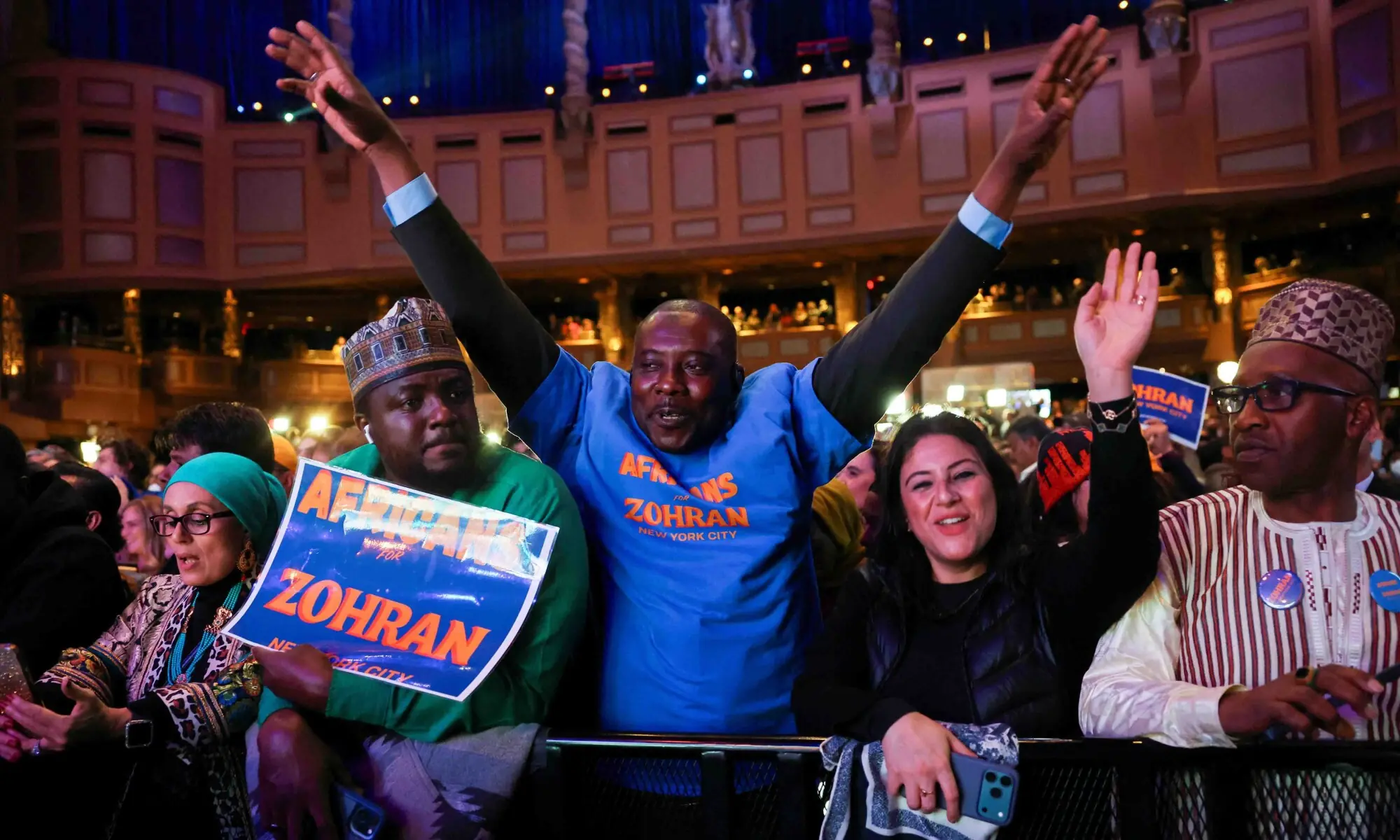
The result also represents a symbolic moment for Democrats nationwide. Mamdani’s coalition — multiracial, youth-driven, and working-class — offers what party strategists are already calling a “blueprint for renewal.” His campaign’s message of affordable housing, public transit reform, and climate resilience resonated across boroughs long neglected by previous administrations.
The celebration scenes captured the energy of a movement. At the Brooklyn Paramount Theater, Representative Alexandria Ocasio-Cortez praised Mamdani’s victory as “a big step toward a better future for our city,” adding that it sent a message to President Trump: “He knows that if you mess with us, you mess with the whole country.”
Civil-rights leader the Rev. Al Sharpton said the last time he saw this level of enthusiasm was in 2008 during Barack Obama’s first presidential campaign. “Mamdani’s victory represents not only belief in one man, but in the idea that New York City can again be an affordable city for Black and Brown communities,” he said.
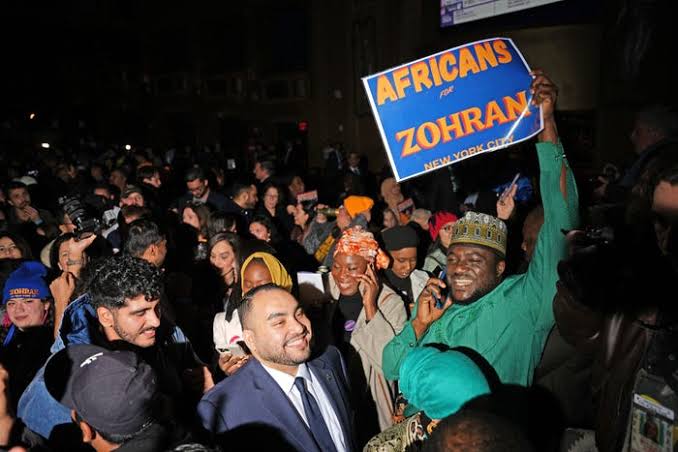
Across Queens, celebrations erupted in Jackson Heights, where Mamdani’s supporters gathered at his favorite restaurant, Kabab King. Cheers filled the air as news broke that he had clinched victory. “It just means representation in the Trump years,” said Lakshmi Shubha, 47. “To have our voices heard. Hopefully now they can say his name right.”
PEACE Magazine gathered that for many Muslim Americans, Mamdani’s win is deeply personal. When he takes office on Jan. 1, he will become New York’s first Muslim mayor and one of the most visible Muslim elected officials in U.S. history.
Community leaders say his rise, two decades after the post-9/11 wave of Islamophobia reflects both resilience and progress. Yet Mamdani himself acknowledged the challenges ahead, telling supporters earlier this week, “This victory isn’t the end of our fight. It’s the beginning of proving that a city built for all of us can actually exist.”
Cuomo’s loss adds to his political decline. The former governor, who resigned in 2021 amid sexual harassment allegations, had attempted a political comeback but was twice defeated by Mamdani this year, first in the Democratic primary, then in the general election. His campaign conceded late Tuesday night, acknowledging “the voters have spoken clearly.”
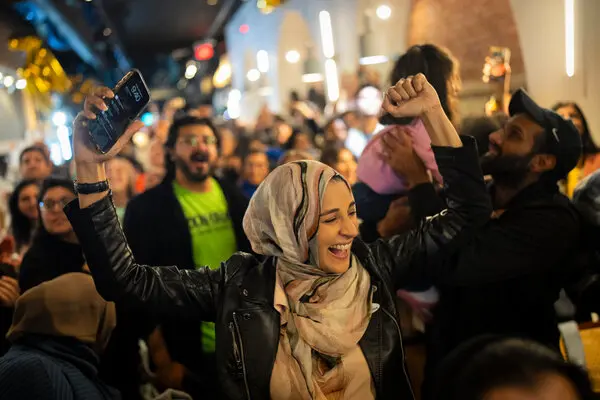
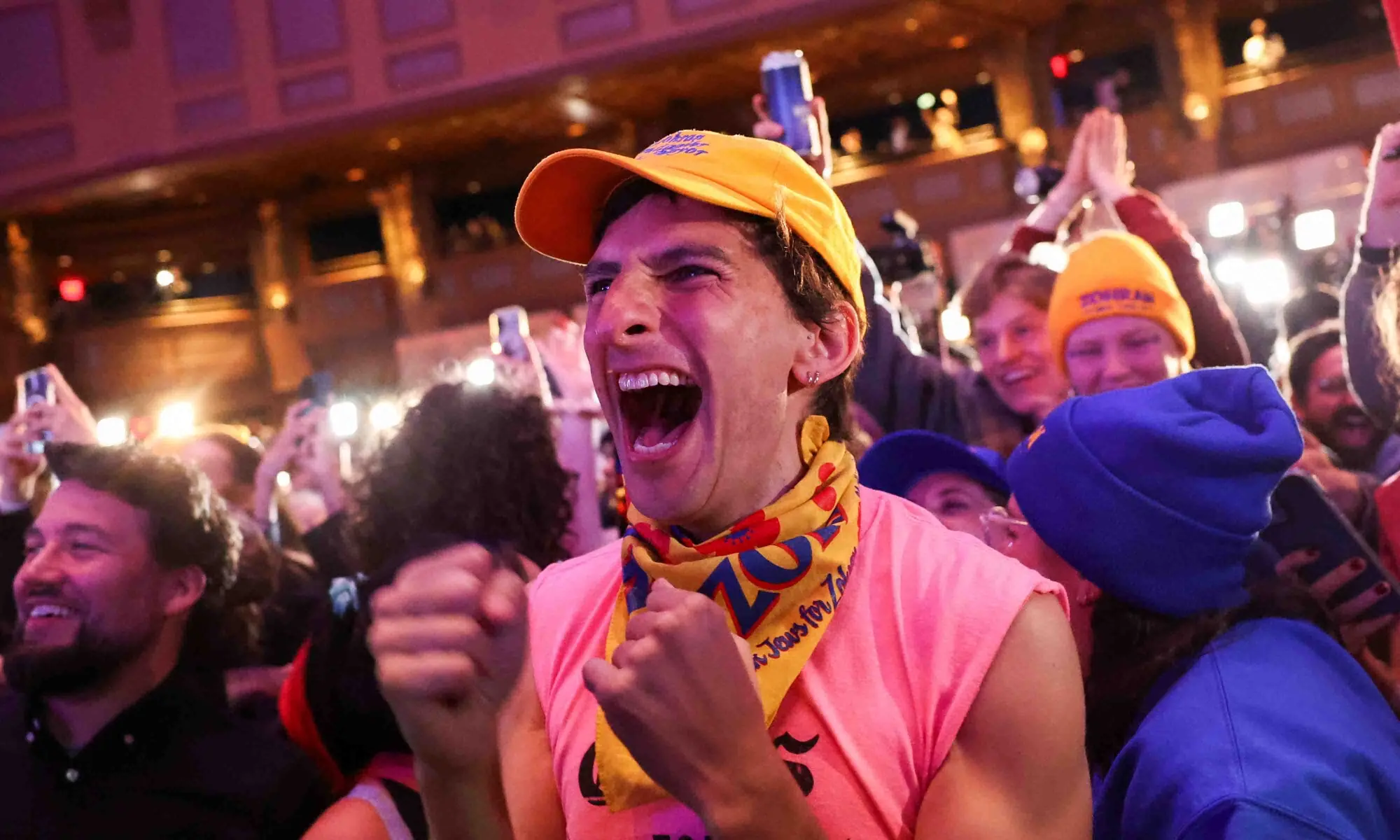
Political observers say Mamdani’s win may reshape Democratic strategy nationwide. “He has shown that progressive messaging tied to tangible issues — housing, healthcare, and wages — can build new voter blocs that defy conventional wisdom,” said New York University political scientist Lila Sampson.
Mamdani, the son of Indian-Ugandan immigrants and a democratic socialist who has represented Queens in the state legislature since 2021, is now poised to lead America’s largest city. His victory speech struck a humble tone: “We built this campaign from living rooms and street corners, not boardrooms. The people of New York made history tonight.”
As dawn broke over the city, the sentiment among his supporters was one of hope — that their city, long shaped by power and privilege, might finally reflect the diversity and determination of those who call it home.
Who is Zohran Mamdani?
Zohran K. Mamdani is a Ugandan-born Indian-American politician, organizer, and community advocate representing Astoria, Queens, in the New York State Assembly since 2021. A member of the Democratic Socialists of America, he has built his political identity around affordable housing, tenants’ rights, and transit reform — issues that have defined his connection to working-class New Yorkers.
Born in Kampala in 1991, Mamdani moved to the United States as a child. His parents, the renowned scholar Mahmood Mamdani and filmmaker Mira Nair, raised him in a home deeply engaged with questions of identity, migration, and justice. That background shaped his politics, particularly his focus on racial and economic equity.
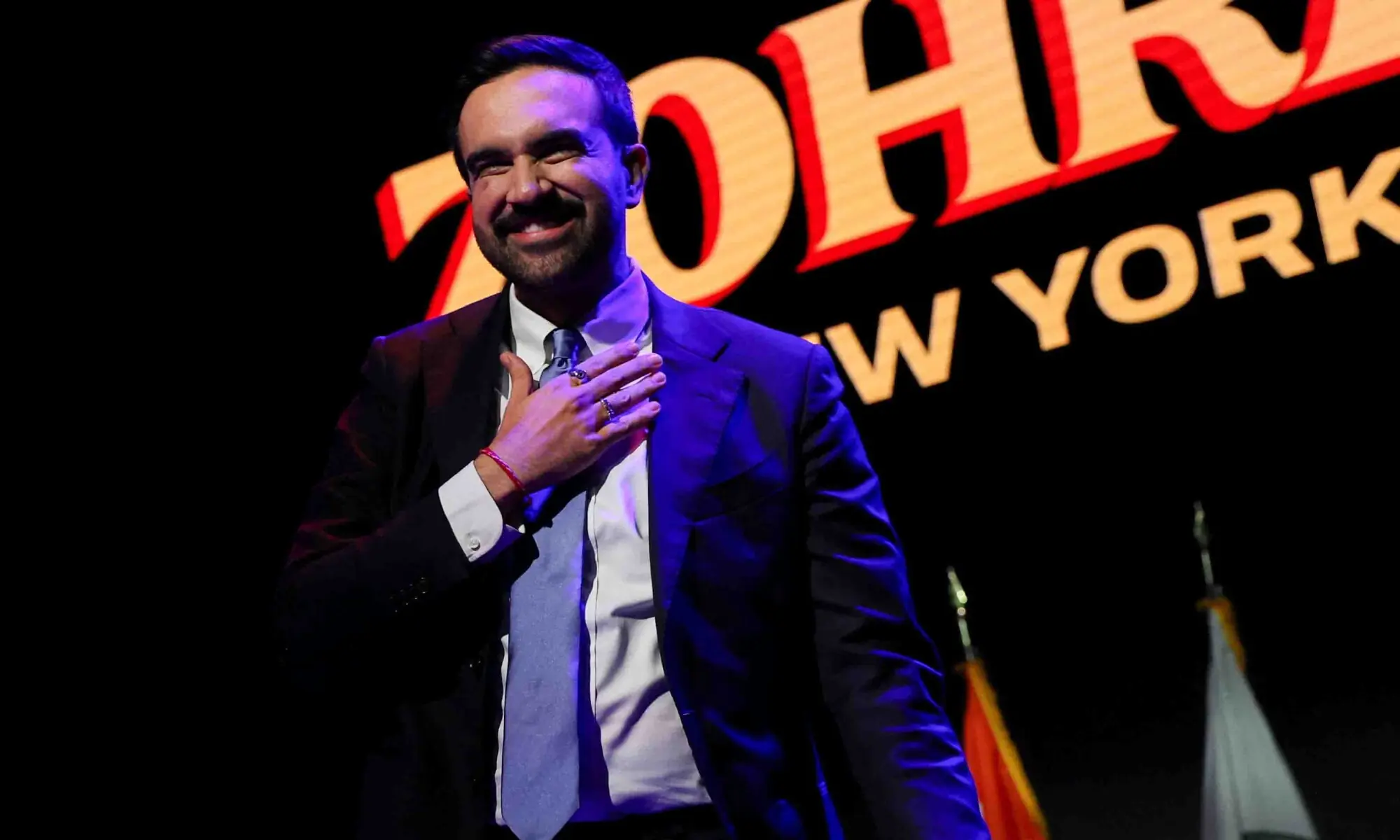
Before entering elected office, Mamdani worked as a foreclosure prevention counselor and housing organizer in Queens, where he became known for his work with immigrant communities facing eviction and rising rents. His activism coincided with a new generation of progressive voices emerging in New York politics — figures like Alexandria Ocasio-Cortez, with whom he shares both political values and a grassroots approach to campaigning.
Since joining the State Assembly, Mamdani has championed legislation to make housing a human right, expand rent control, and reform the city’s public transit system. His outspoken advocacy for Palestinian rights and critiques of U.S. foreign policy have also drawn national attention, often placing him at the intersection of domestic and global justice movements.
With additional information from The New York Times

